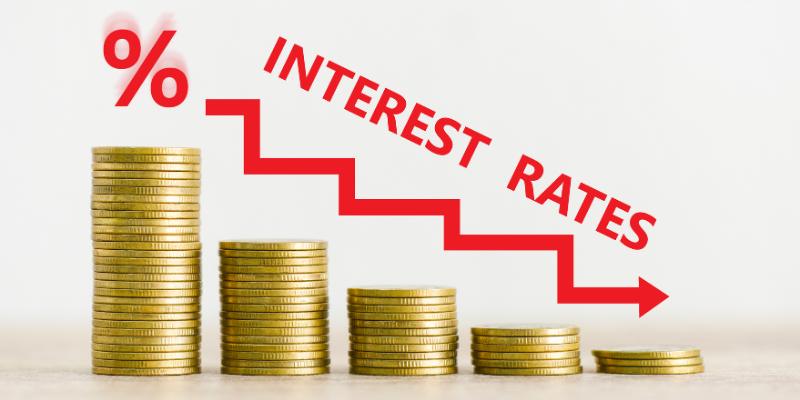Debt Consolidation: Benefits, Risks, And What To Consider
Managing debt may be difficult, especially with several current loans or credit card bills. One strategy that may help is debt consolidation. But what exactly is it, and how can it affect your financial future? In this article, we’ll explore the benefits, risks, and factors to consider before choosing debt consolidation as a debt management solution.
Debt Consolidation: What Is It?
Consolidating several loans into a single loan or credit line is known as debt consolidation. By doing this, debtors can get better repayment conditions or a reduced interest rate, which can help them pay off their loans faster. People managing many types of debt, such as credit cards, personal loans, or medical expenses, frequently employ debt consolidation.
The Benefits Of Debt Consolidation

Deb consolidation has several benefits that assist people in taking back control of their financial circumstances. Here are some essential advantages to think about:
1. Easier Payment Processing
One of debt consolidation's key benefits is making payments more manageable. Consolidation lets you make monthly payments instead of handling invoices with various due dates and interest rates. This can make it easier to remain on top of your money and less likely that you will skip payments.
2. Reduced Interest Rates
When you consolidate your debt, you can obtain a loan with a lower interest rate than your current loans. For instance, you can save money by combining high-interest credit card balances into a loan with a reduced interest rate. This might lower the overall interest you pay over time and help you pay off your debt more quickly.
3. A Higher Credit Score
Paying on time could improve your credit score and consolidate your debts, exceptionally high-interest credit card accounts. This is because your credit utilization ratio—a crucial component in determining your credit score—will drop. Lenders can tell you are handling your debt properly if your credit utilization ratio is lower.
4. Long-Term Debt Reduction
Consolidation can help those having trouble paying off several high-interest loans and get closer to long-term financial independence. Consolidation may help you pay off your debt faster by lowering interest rates and streamlining payments, removing any remaining amounts, and offering financial relief.
The Risks Of Debt Consolidation

Although debt consolidation has many advantages, drawbacks and hazards may also exist. Before determining whether consolidation is the best option, consider these risks carefully.
1. Extended Time Frame For Repayment
The time it takes to pay off your debts may increase if you consolidate your debt. This may lower your monthly payments, but it may result in higher interest payments throughout the loan. Even if your monthly payments are lower, you can spend more overall if you select a consolidation loan with a longer term.
2. Upfront Charges And Expenses
Origination or balance transfer fees are among the up-front expenses associated with many debt consolidation loans. Consolidation may end up costing more than anticipated due to these expenses. Before moving forward, thoroughly review the loan details to ensure the costs are within the advantages of consolidation.
3. Possibility Of Additional Debt
You risk accruing more outstanding debt if you utilize debt consolidation to reduce your monthly payments without altering your spending patterns. For instance, you can be in a worse financial scenario if you combine your credit card debt and keep using credit cards to make purchases.
4. Loss Of Certain Benefits
Consolidating debt may require sacrificing certain advantages. For instance, federal student loans provide choices for deferral or forbearance that private consolidation loans would not offer. Similarly, if you combine points or other benefits from certain credit cards into a loan from a different lender, you can forfeit them.
5. Impact On Your Credit Score
The debt consolidation process may immediately affect your credit score, even though it might raise it over time. When you apply for a new credit card or loan, your credit report may receive a hard inquiry, temporarily lowering your score. Additionally, closing previous accounts after consolidating may result in a shorter credit history, which can reduce your credit score.
What To Consider Before Consolidating Your Debt?
Several factors should be considered when determining if debt consolidation is your best option. These will help ensure that the choice aligns with your financial objectives.
The Score of Your Credit: You may be eligible for a consolidation loan mainly based on your credit score. If your credit score is high, you can obtain a loan with favourable terms, such as reduced interest rates. A poorer credit score, however, may result in higher interest rates or disqualification from some loans. You can better grasp your possibilities if you know your credit score.
The Total Amount of Your Debt: Deb consolidation works best when consolidating a large debt into a single loan. Consolidation could be possible if your debt is manageable or you can pay it off quickly. Assessing your debt and ascertaining whether debt consolidation would improve your financial circumstances is critical.
Different Approaches to Debt Management: There are several ways to manage debt; debt consolidation is simply one of them. Depending on your financial circumstances, you could look at options like bankruptcy, debt settlement, or debt management plans.
Conclusion: Should You Consolidate Your Debt?
Some benefits of debt consolidation are reduced interest rates, more manageable payments, and higher credit scores. However, it also has hazards, such as extended repayment terms, up-front costs, and the possibility of accumulating extra debt.
Compare consolidation alternatives, weigh the benefits and drawbacks, and evaluate your credit score and debt load to decide if debt consolidation is the best option. By being aware of the advantages and disadvantages of debt consolidation, you can make a good decision that will set you on the path to financial independence.
Related Posts
- 7 Effective Ways To Build Credit Using Your Credit Card
- Medical Debt And Its Effect On Your Credit Score
- Top 5 Strategies To Legally Reduce Taxes On Rental Income
- How To Get A Business Credit Card With Low Or No Credit?
- How To Start A Digital Marketing Business: A Concise Guide
- What States Have No Taxes On Airplane Tickets?